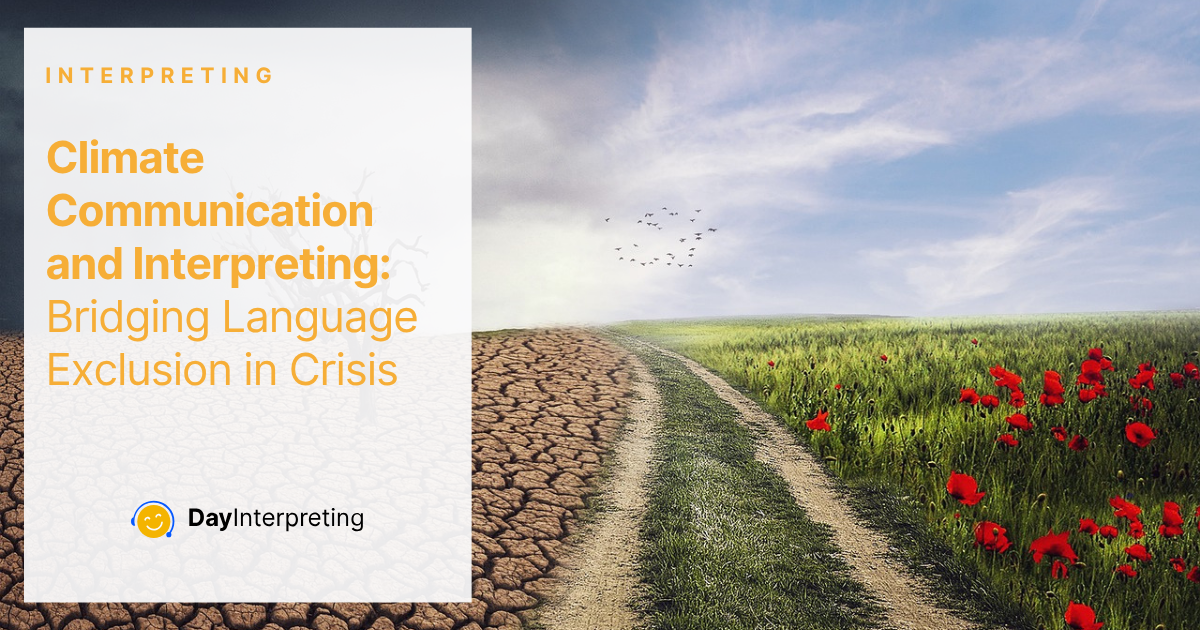In April 2025, the U.S. National Weather Service (NWS) suspended its automated translation of emergency alerts, covering Spanish, Chinese, Vietnamese, French, and Samoan, due to a contract lapse with AI provider Lilt. This move created a potential life-or-death gap for nearly 68 million Americans who speak a language other than English at home and rely on climate communication in their native languages.
Advocates warn that a lack of translated alerts during extreme weather, tornadoes, hurricanes, and floods could leave non-English speaking communities vulnerable. A survivor in Mayfield, Kentucky, attributed her escape from a 2021 tornado to receiving a Spanish‑language alert she could understand.
Language Barriers and the Climate Crisis
Globally, language exclusion is deepening the climate communication gap. According to CLEAR Global, four billion people lack access to climate-critical information in their native language, especially in multilingual regions of Africa and Asia. Research from Bihar, India, demonstrates how floods and droughts displace entire communities, and with the loss of their environment, traditional languages like Angika, Bajjika, Surjapuri, and Tharu are rapidly declining.
This erosion isn’t just linguistic; it impacts oral traditions, ecological terminology, and indigenous knowledge tied to sustainable livelihoods and climate resilience.
Why Interpreters Are Crucial for Climate Communication
1. Translating Critical Weather Alerts
With automated translation paused or flawed, human interpreters remain vital in ensuring timely and accurate emergency communication. Misinformation or delay can be deadly.
2. Interpreting Climate Science to Local Communities
Climate messaging often uses academic or technical language. Human interpreters help localize content, avoiding jargon and making it culturally relevant. Studies in Nigeria show that using complex English weakens public understanding of climate threats in rural communities.
3. Preserving Indigenous Climate Wisdom
Indigenous languages carry unique ecological knowledge, terms for local species, adaptation practices, and traditional weather lore. As environmental degradation displaces communities, interpreters help preserve these languages and knowledge systems.
4. Designing Inclusive Communication Campaigns
Projects like the Wits Centre for Journalism’s “Climate: In My Culture” encourage the creation of climate narratives in local languages, making the messaging culturally valid and locally credible.
Interpreting Challenges in Climate Contexts
- Low-resource and endangered languages: Often lack established terminology for climate concepts, requiring interpreters to innovate or create equivalents.
- Multilingual settings: Rural or displaced populations may speak multiple local dialects, and interpreters need flexibility.
- High-stress urgency: Environmental crises demand speed and clarity, often under resource-poor conditions.
How Interpreters and Language Services Can Respond
- Partner with climate NGOs to develop multilingual alert systems and campaigns
- Train in ecological terminology, local metaphors, and disaster-risk communication
- Document and co-create translation glossaries with indigenous speakers, ensuring the survival of climate-related vocabulary
- Include interpreting in risk preparedness planning, especially for marginalized communities at high risk of climate impact
Final Word: Interpreters as Climate Justice Advocates
As climate crises become more frequent and severe, language access becomes a matter of survival. When translation services falter, as with the NWS, or when entire languages face disappearance, interpreters stand at the frontline of communication equity.
In 2025, interpreters aren’t just mediating spoken content, they are climate communicators and guardians of linguistic inclusion. By ensuring that life-saving information, environmental knowledge, and scientific data reach every population in a language they understand, interpreters empower not just language access, but hope, safety, and resilience.





0 Comments